On Making Relatives
5NP as decolonization: an interview with Dolores Jimerson, MSW
Dolores Jimerson is the Behavioral Health Education Director for the Northwest Portland Area Indian Health Board. We were introduced by email a few years ago, and last summer we met in person when she led a 5NP training in POCA Tech’s classroom for a cohort of tribal alcohol and drug counselors.
It’s not a secret that I’m frustrated with some L.Acs’ response to the rulemaking process for 5NP in Oregon. But I don’t want to just yell at people, so I asked Dolores if she would be willing to help explain why community members providing 5NP is so important, and she graciously agreed (even though she was on vacation at the time!). This is an excerpt from a longer conversation.
Me: First, do you mind recapping your own history with 5NP?
Dolores: Sure. In 2016 I went to a NADA training in Albuquerque and became an Acudetox Specialist (or 5NP Tech, to use the OMB’s term). I was working at the Yellowhawk Tribal Health Center, on the Confederated Tribes of the Umatilla Indian Reservation, doing integrated care in primary care and behavioral health.
At the time, Indian Health Services recognized 5NP as a best practice in addressing methamphetamine use and suicide prevention, and word quickly got out on the reservation. The tribe’s sovereign status meant they could decide who could provide 5NP, so I began offering it to patients. It was something that they could use while they were on a wait list for other services, and people loved it. There was so much need that in 2017 I applied to become a registered trainer myself, and in 2018 we trained a cohort on the reservation.
Of course there were elders doing this on tribal country before I ever started. As one of them said to me, our people used to use porcupine quills as a needling practice.
Me: Can you talk about why 5NP is important to Native communities?
Dolores: It has been so hard to get access to care and access to culturally relevant services. It is still so difficult to find trauma informed services that resonate with our culture and that are appropriate for generational trauma, for indigenous trauma. 5NP isn’t talk therapy. 5NP is meant to be used in conjunction with other things — and those things include tribal ceremonies. We are so relational, and 5NP is an opportunity for that relational worldview to be used. When you’re sitting in a circle, receiving this from someone in your community — as opposed to some stranger who doesn’t know you — it’s very powerful. 5NP is something that we can do within our own culture.
As we’re having this conversation, I’m seeing all these faces — all these people who have experienced connection and healing through receiving 5NP. I remember one person who was a hospice patient, and 5NP brought him so much peace. He said to me, Because of this I was able to address some things on this side of the stars that I otherwise would have had to do on the other side. He had such a peaceful passing, it was such a beautiful thing for him and his family.
In our trainings we talk about how just the act of someone asking for help and consenting to receive it is so significant. Even if you put only one needle in someone’s ear and they change their mind and say no, I don’t actually want to do this and you take it out — nonetheless you have activated the point and you’ve activated the healing.
On tribal lands it’s all about community. We are there for each other. 5NP and the idea of acudetox resonate with so many tribal people because of our cultural values.
Me: Can you expand on that?
Dolores: Different tribes have different ways of saying this. My people are the Haudenosaunee and we say: When we were created, Creator blew breath into us and gave us our original instructions, which include things like: be grateful; do no harm; be generous. Remember that everything has life and is interconnected. Everyone was meant to have family. If you meet someone who doesn’t have family, you make relatives with them, you make connection.
If you think of people who are living on the street, they’re disconnected, they’re dysregulated. If they can show up to that circle of 5NP — and that’s all they have to do, just show up — it’s a feeling of I can be connected to community again. It brings people back together.
5NP expresses our value of generosity: we give back, we share, we make connection.
Me: Will Miller also talked about this. Early on when I was working on 5NP for Oregon with him, it was very striking to me the way he kept inviting everybody into the process. Particularly people I didn’t necessarily want to invite, who I didn’t really want to work with, and who I wouldn’t have invited, on my own. The way he kept extending generosity and grace and possibility to everybody — it was humbling, and at some point I said something like, working on this project with you is an amazing experience, I wouldn’t have been capable of this kind of openness on my own. And he responded, very matter-of-factly, Well these are our cultural values and this is how we live them.
I think something’s that’s hard to explain to people who aren’t familiar with 5NP is the way it creates benefits that sort of spill over to the whole community, beyond what you would think of as the result of an individual acupuncture treatment or even the group where it’s happening.
Dolores: And that is also consistent with indigenous cultural values. For example, when we hold a sweat lodge ceremony, maybe not everyone can actually go into the sweat lodge — but we believe that you benefit just by being present, even if you can’t go in yourself. Not everyone needs to be receiving the treatment — just being in the space, everyone benefits. I have witnessed this.
In 2022 there was a shooting at the casino in Pendleton. In the aftermath, I was asked to go and provide 5NP — they asked me because the community knew me. I said that I couldn’t do it alone, and other NADA-trained people came forward to help me. We were there for two days — people were lined up, waiting to receive 5NP. One of the casino managers who hadn’t been able to sleep for two days fell asleep in his chair, it was the first time he could calm down enough. Because people received 5NP they were able to be open to other things, like therapy. We were praying with them. I wish you could have felt that, what it felt like in that room.
Me: I think I know what you mean. Also, I suspected I was going to cry in this conversation, turns out I was right.
Dolores: For tribal people, what we love about 5NP is that it’s decolonization at its best. If you think about what colonization was, it’s imposing a worldview as a way of being. It’s: I am going to separate you from your resources, your homeland, all your family, all your food, all your medicine, put you in this unfamiliar place and let’s see how you survive.
Decolonization is about community, connection and love. And the gratitude and the remembering that we are all interdependent.
Me: What I most wish I could convey about 5NP in Oregon, from my own experience of working on the process, is how much it’s an example of Native cultural values in action, of generosity and inclusion and making connections — and how it’s potentially so good for everyone, just for this expansion of 5NP to be happening, period.
It’s similar to what it’s been like for my clinic to be a small-business client of NAYA, the Native American Youth and Family Center, and their neighborhood economic development arm. To be invited into a vision of community prosperity, to be included and supported as a part of the Cully neighborhood. This experience of being a beneficiary and subsequently a participant in this exercise of Native cultural values —it’s been deeply meaningful for me personally, and it’s been so important for WCA as an organization and for POCA Tech as a school.
I wish acupuncturists could understand that being invited to participate in the process of expanding 5NP beyond tribal lands is an honor and a gift. It’s a kind of healing, in its own right.
Dolores: Making relatives is also about responsibility. We’re not acupuncturists, we’re not trying to learn what acupuncturists learn.
For us, 5NP trainings are a form of indigenous pedagogy. Our tradition is oral and it’s about hands on learning. Learning is what’s given in the cellular memory. When I train tribal people to provide 5NP, I tell them: you have to be able to convey this in a way that makes sense to your own community.
It’s a relational way of learning. We set intentions, say prayers, come together. We want people to feel safe in the training cohort. We share this relational way of being — not just with each other but also honoring our elders, including our 5NP elders.
And the purpose of the training is not for us to replace acupuncturists in their roles. The purpose of 5NP training is for us to take care of each other, to take care of our families, to take care of our communities. This is not about us opening up big fancy clinics.
One of our cultural values is, do no harm. We believe that if you’re not in a good space, you shouldn’t be cooking food, you shouldn’t be doing anything for others until you tend to yourself. It’s the same with providing 5NP.
It’s a community responsibility and we take it seriously.
Recently, eight of the nine tribes in Oregon voted to allocate more funding for training 5NP providers. The only tribe that said no was Umatilla — and that’s because they’re fully staffed with 5NP providers in their public health and behavioral health services.
5NP in Oregon is not something new. It’s been happening.
Me: Thank you. I’m so glad we had this conversation.


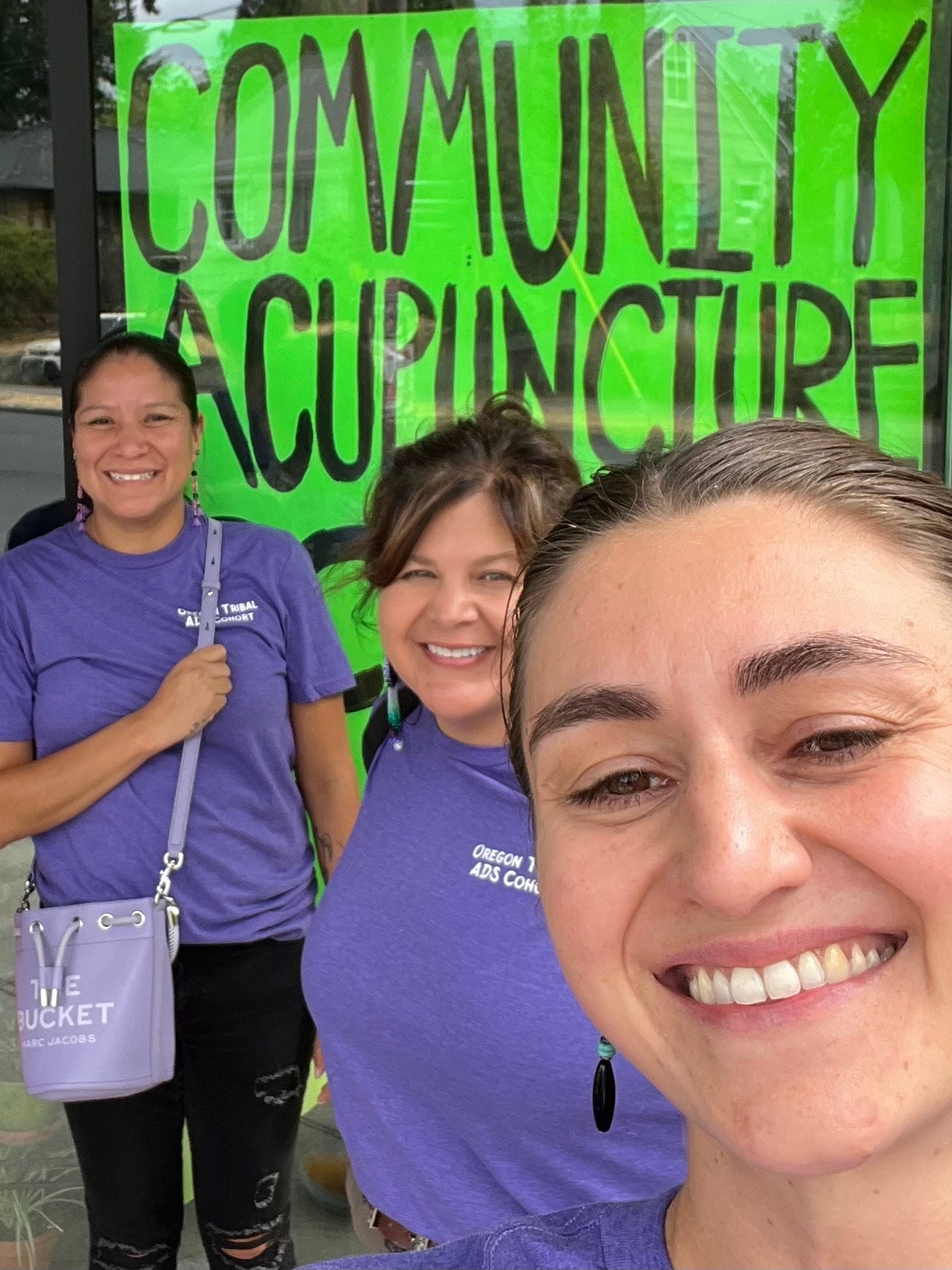
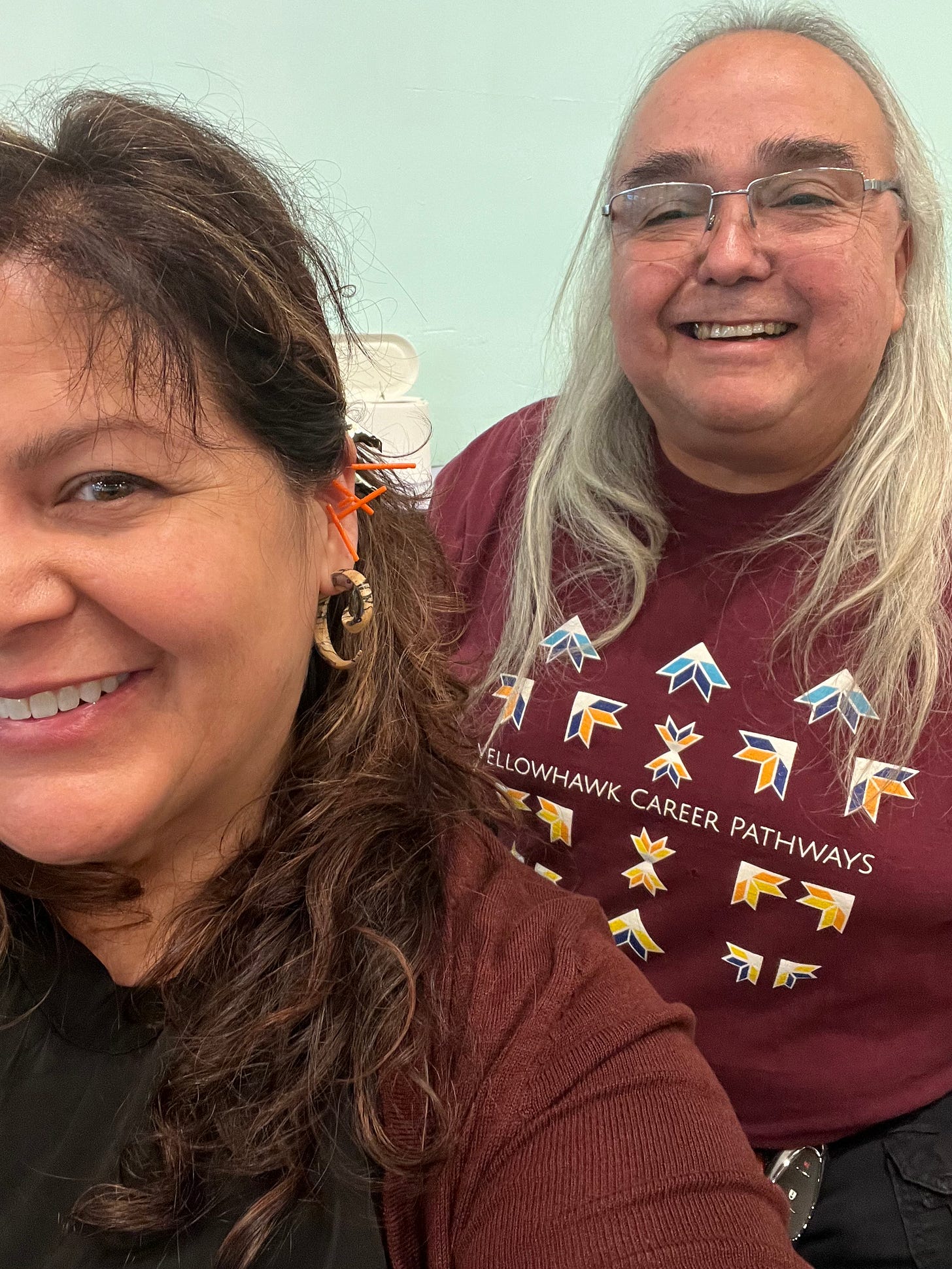
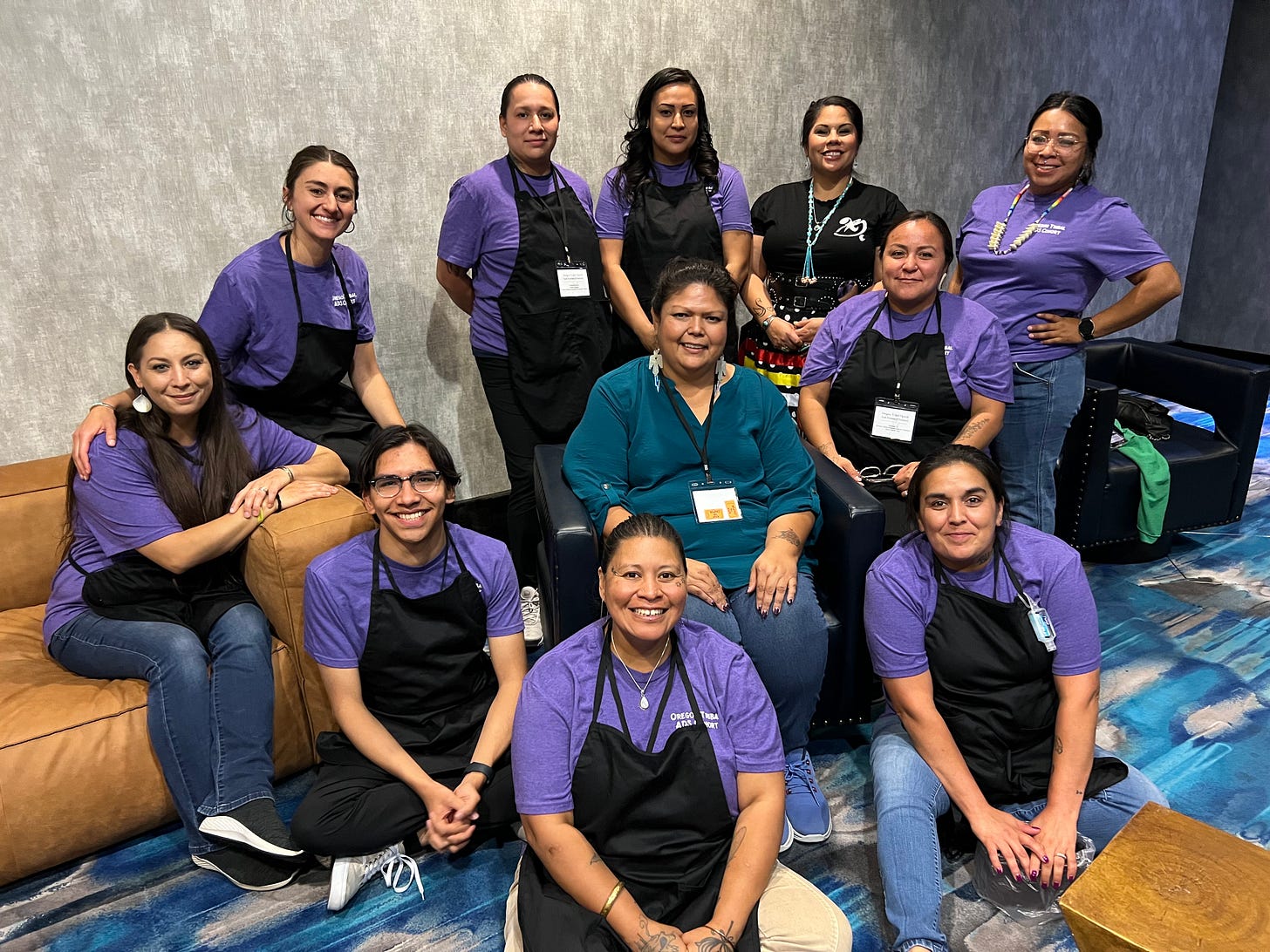
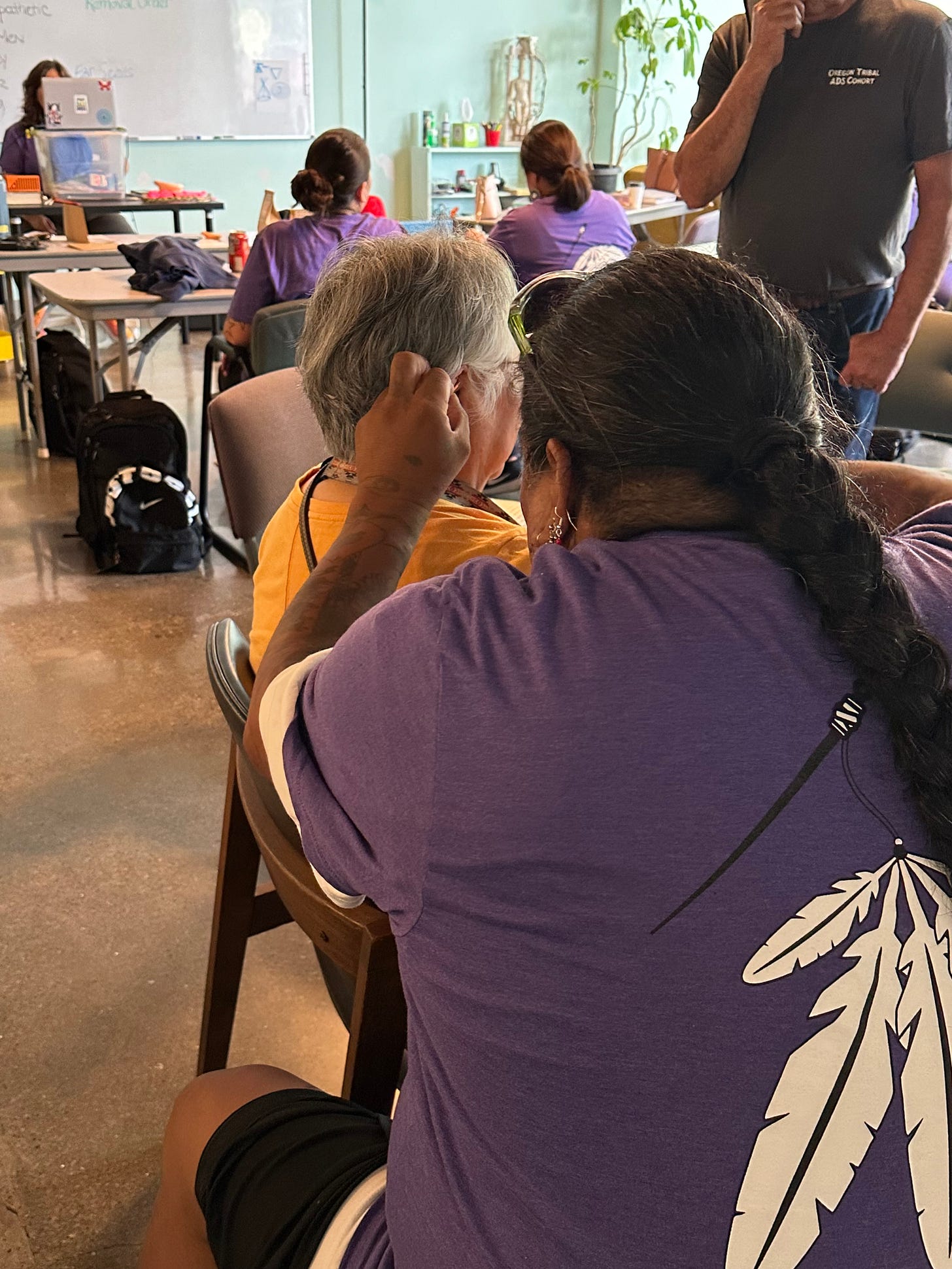
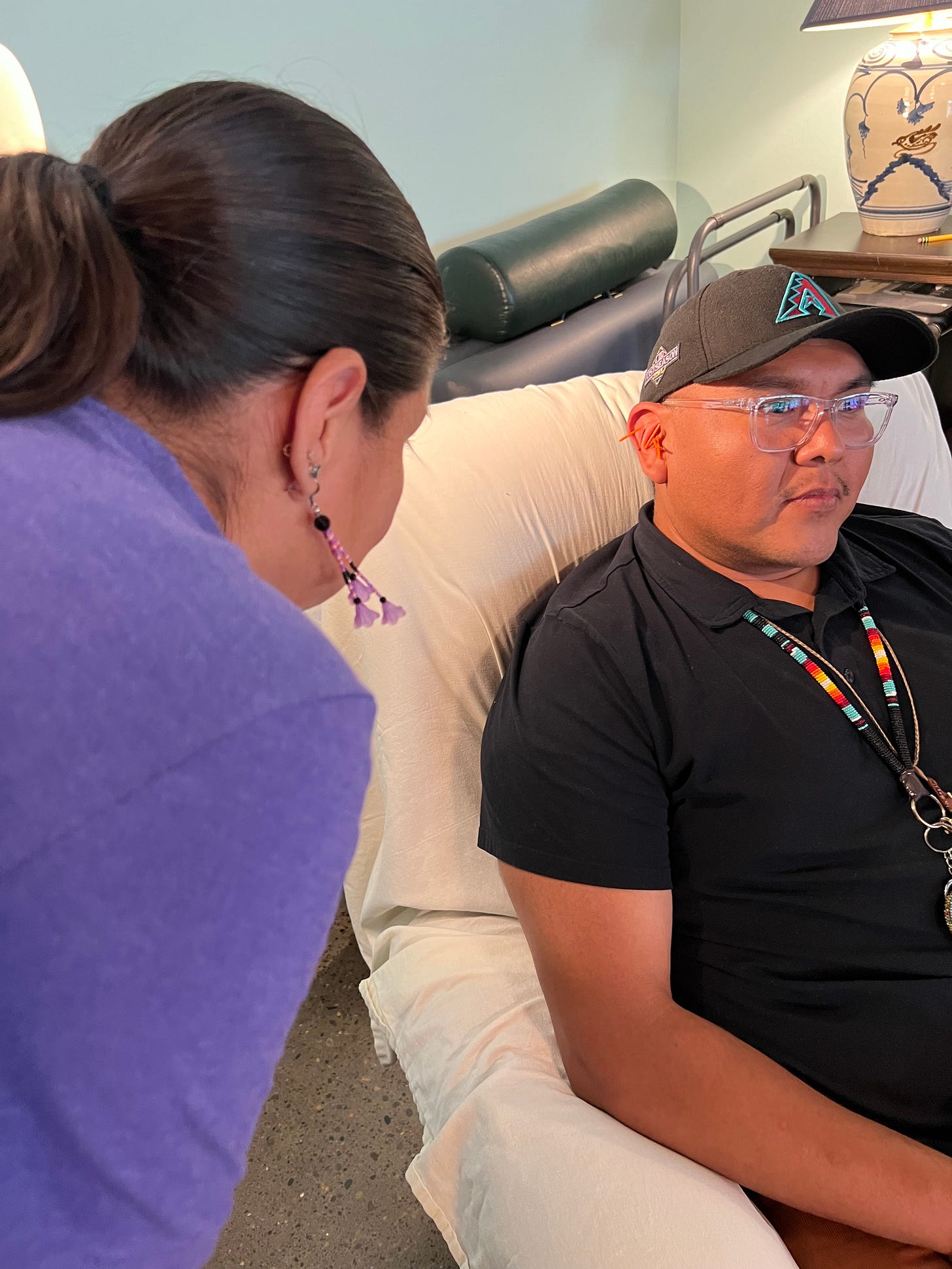
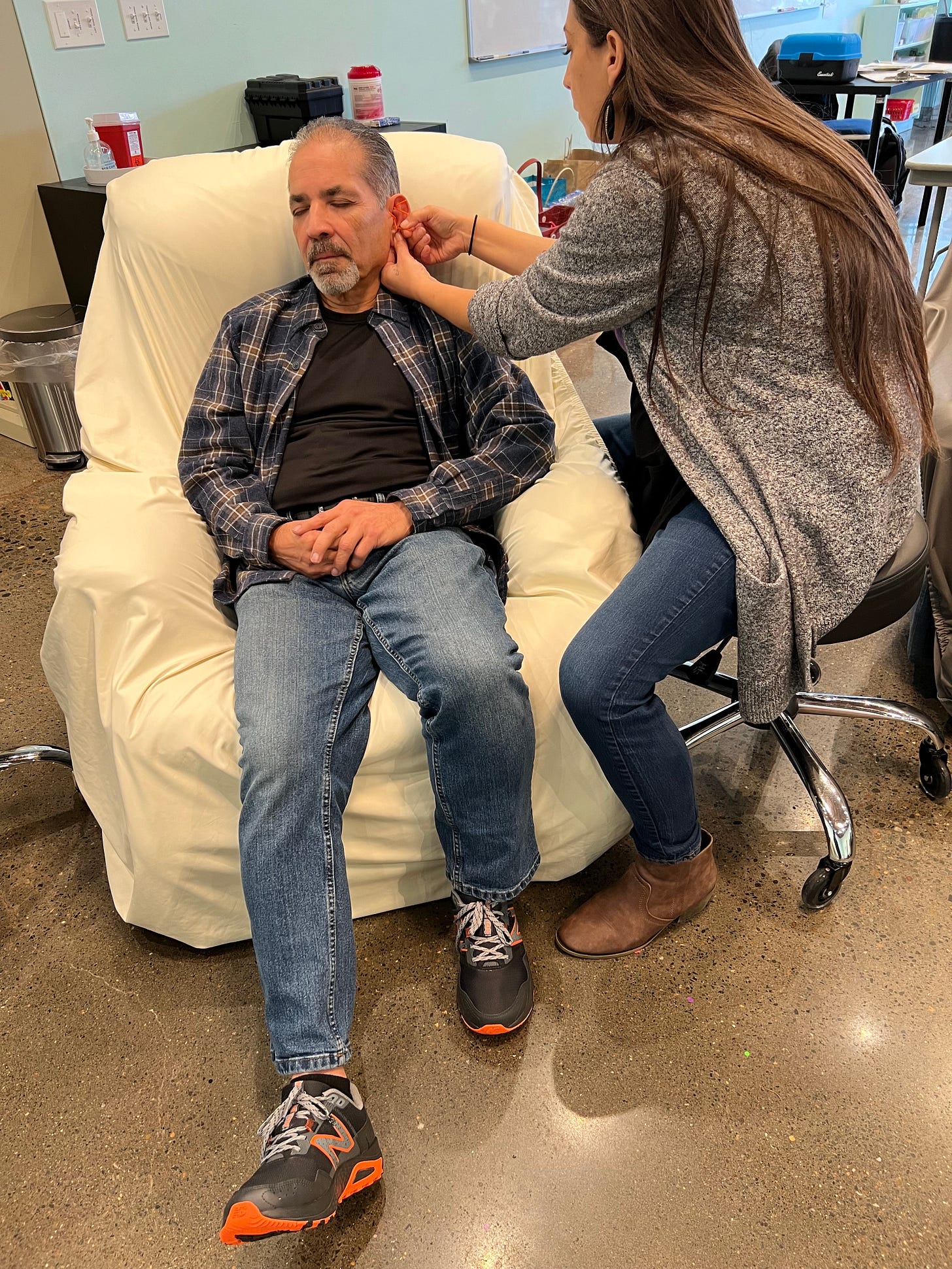
https://youtu.be/EL3LSMa4IOQ
we have it on our website "resources".
Thanks for sharing this interview Lisa. I'm honestly baffled by all the pushback from the acupuncture community to this bill. Maybe this conversation will shift some of that? Concepts that stuck out to me - generosity, care, community, relations, decolonization, access, restoration. It's embarrassing that the acupuncture profession is largely working against these efforts.